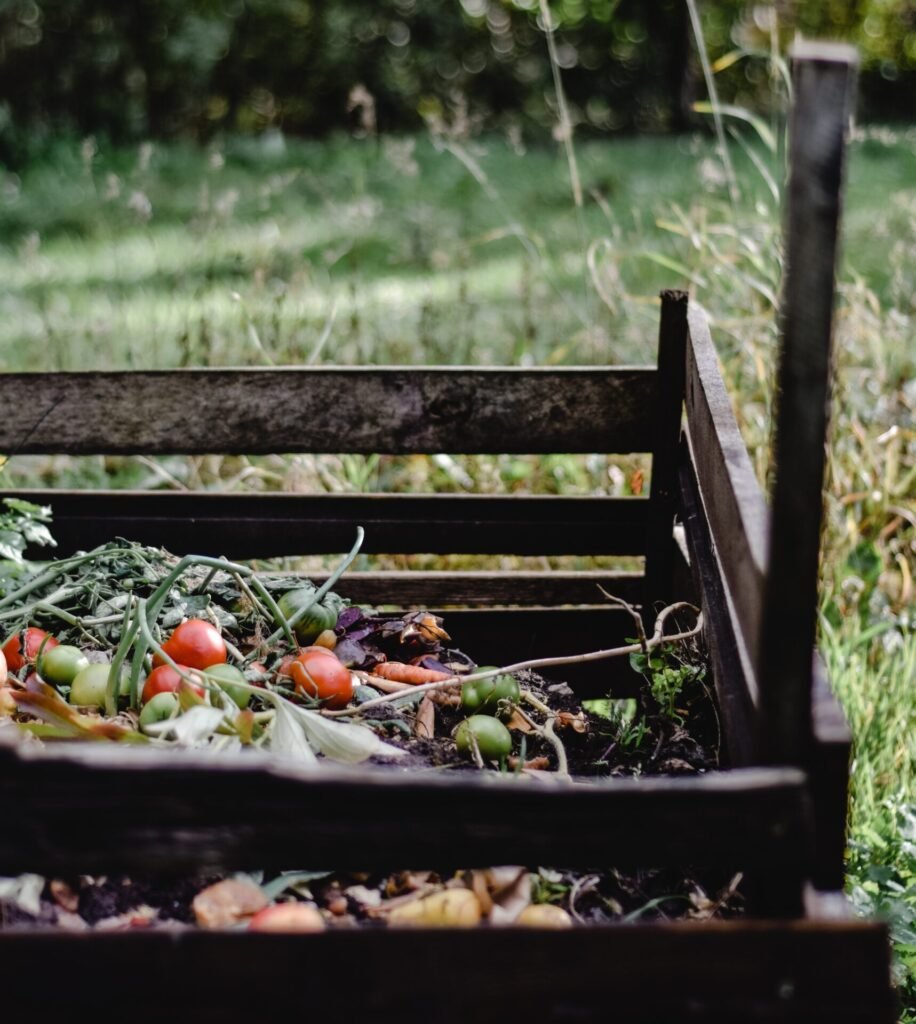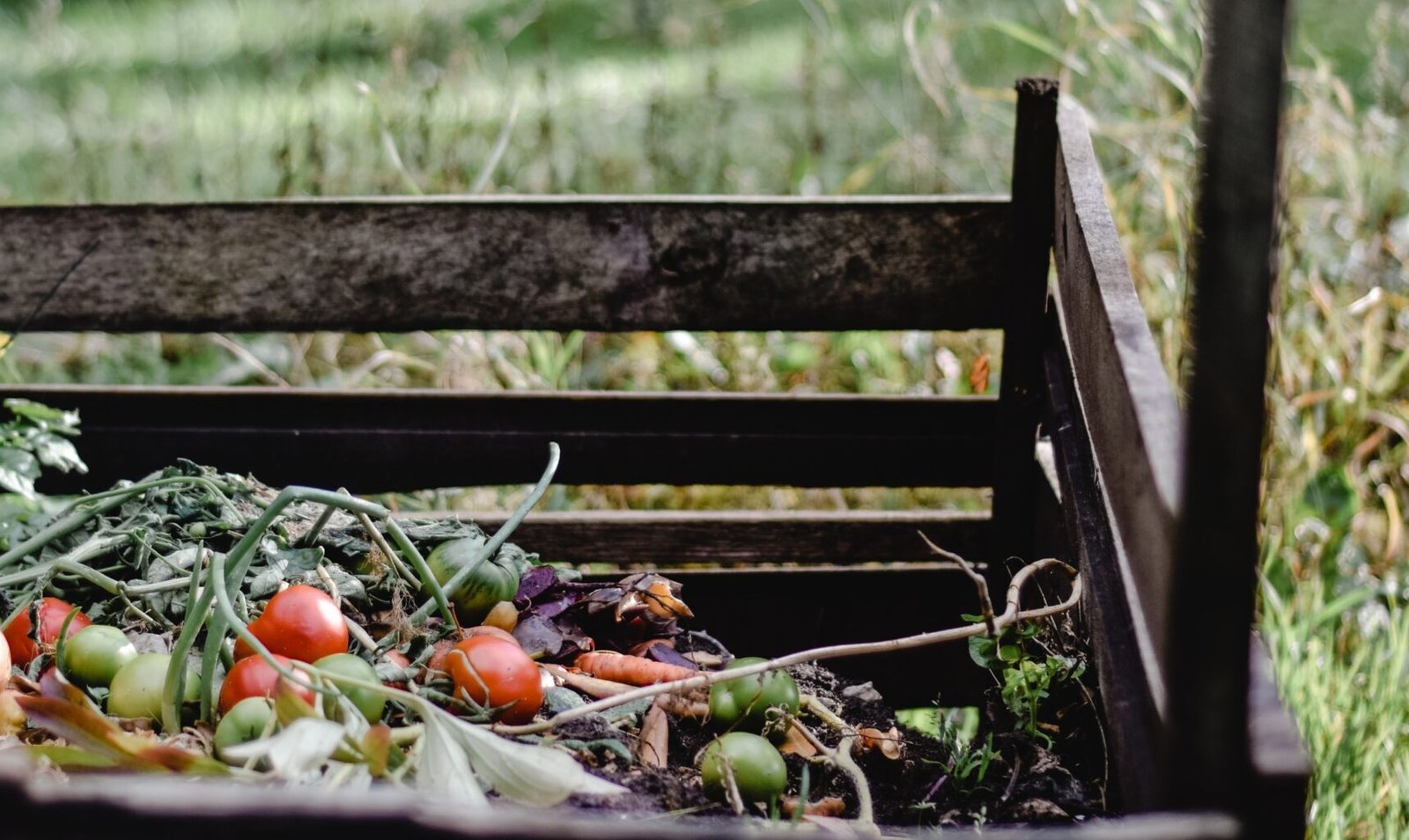Are you tired of throwing away your food scraps? Do you want to reduce your environmental impact and promote sustainability? No waste composting may be the solution for you! In this article, we will explore how no waste composting works, its benefits, and resources for getting started.

How No Waste Composting Works
No waste composting is a modern composting method that involves the collection and transportation of food scraps to a composting facility. This sustainable practice can also be easily adapted for homes. Unlike traditional composting, no waste composting can handle a wider range of food scraps, including meat, dairy, and citrus, thanks to specialized equipment and efficient processes.
Once the food scraps are collected, they can be processed at home or transported to a composting facility. In either setting, these scraps are combined with other organic materials, like leaves and yard waste. The mix is then placed in piles or bins, where it undergoes controlled decomposition. Over time, this process transforms the organic matter into a valuable, nutrient-rich soil amendment that’s perfect for your garden and farming needs.
What Sets No-Waste Composting Apart?
Traditional composting methods are excellent at breaking down organic materials, but they may still generate some waste or unusable residue in the process. This is where no-waste composting takes center stage. The core principle behind no-waste composting is to minimize waste generation at every step of the composting journey. Here’s how it differs from conventional composting:
- Selective Composting: No-waste composters carefully choose the materials they add to their compost bins, ensuring that nearly everything gets fully converted into valuable compost. This includes avoiding materials that are slow to break down or may leave behind unusable residues.
- Precision in Balancing: Achieving the right balance of greens (nitrogen-rich materials) and browns (carbon-rich materials) is crucial for successful composting. No-waste composters pay special attention to this balance, optimizing their composting mix to create the highest-quality compost with minimal waste.
- Mindful Management: No-waste composting involves meticulous management of the compost pile or bin. Turn your compost regularly, maintain proper moisture levels, and monitor the temperature to encourage rapid decomposition and minimize waste.
- Reduced Waste Output: By adopting these practices, no-waste composters significantly reduce the likelihood of ending up with a pile of unfinished compost or waste materials that cannot be used effectively in the garden.
Why Choose No-Waste Composting?
No-waste composting goes beyond the traditional approach by striving for minimal waste production throughout the composting process. By embracing this sustainable method, you not only contribute to a healthier environment but also ensure that your composting efforts yield the highest returns for your garden or plants.
Benefits of No Waste Composting
No waste composting offers a range of benefits, both for individuals and the environment.
Environmental Benefits
- One of the primary benefits of no waste composting is its ability to reduce greenhouse gas emissions and waste diversion. When food scraps are sent to landfills, they decompose anaerobically (without oxygen), producing methane gas. Methane is a potent greenhouse gas that is 25 times more powerful than carbon dioxide in terms of its global warming potential. By diverting food scraps from landfills and composting them instead, no waste composting can reduce methane emissions and contribute to climate change mitigation.
Economic Benefits
- No waste composting can also provide economic benefits by reducing waste disposal costs and providing a free source of fertilizer. When food scraps are sent to landfills, they take up valuable space and require costly waste management infrastructure. By composting food scraps instead, municipalities and businesses can save money on waste disposal costs and potentially generate revenue by selling compost.
Health Benefits
- Finally, no waste composting can provide health benefits by improving soil quality and reducing exposure to harmful chemicals. Compost is a natural fertilizer that can improve soil structure, water retention, and nutrient availability. By using compost in gardening and farming, individuals can reduce their reliance on synthetic fertilizers and pesticides, which can have negative effects on human health and the environment.
| Benefit | Explanation |
|---|---|
| Environmental | No waste composting reduces greenhouse gas emissions and waste diversion. By diverting food scraps from landfills and composting them instead, no waste composting can reduce methane emissions and contribute to climate change mitigation. |
| Economic | No waste composting can provide economic benefits by reducing waste disposal costs and providing a free source of fertilizer. By composting food scraps instead, municipalities and businesses can save money on waste disposal costs and potentially generate revenue by selling compost. |
| Health | No waste composting can provide health benefits by improving soil quality and reducing exposure to harmful chemicals. Compost is a natural fertilizer that can improve soil structure, water retention, and nutrient availability. By using compost in gardening and farming, individuals can reduce their reliance on synthetic fertilizers and pesticides, which can have negative effects on human health and the environment. |
How to Get Started with No Waste Composting?
Choosing the Right Container or Bin
Selecting the appropriate container or bin is the first step in embarking on your no-waste composting journey. It’s crucial to opt for a container that meets specific criteria to facilitate effective composting:
- Airtight and Leak-Proof: An airtight and leak-proof container helps contain odors and prevents pests from gaining access to your composting materials. It also ensures that your compost stays moist without becoming overly soggy.
- Easy to Clean: Compost containers should be easy to clean to maintain hygiene and prevent unpleasant odors. Look for containers with removable lids or liners that can be washed easily.
- Size Matters: Consider the amount of compostable material your household generates. Choose a container size that suits your needs, whether it’s a small countertop bin for daily kitchen scraps or a larger outdoor bin for your garden.
- Repurposing Options: If you’re looking for an eco-friendly choice, consider repurposing an old container, such as a plastic bucket or storage container. Just ensure it meets the criteria mentioned above.
Balancing Food Scraps and Dry Carbon Material
Achieving the right balance between food scraps (nitrogen-rich materials) and dry carbon material (carbon-rich materials) is fundamental to successful no-waste composting. Here’s how to do it:
- Carbon Sources: Collect dry carbon sources like leaves, straw, wood chips, sawdust, or shredded paper. These materials provide the carbon necessary for the composting process.
- Food Scraps: Collect kitchen scraps like fruit and vegetable peels, coffee grounds, eggshells, and non-greasy food leftovers. These are rich in nitrogen and provide essential nutrients for your compost.
- Balancing Ratio: Aim for a ratio of approximately three parts dry carbon material to one part food scraps by volume. This balance ensures that your compost pile has the right mix of carbon and nitrogen for efficient decomposition.
Common Mistakes to Avoid
To make your no-waste composting endeavor a success, steer clear of these common pitfalls:
- Imbalanced Ratio: Avoid adding too many food scraps without enough dry carbon material. An imbalanced ratio can lead to a smelly, slimy compost pile that attracts flies and other pests.
- Non-Compostable Materials: Be vigilant about what goes into your compost. Never add non-compostable materials like plastics, metals, or pet waste. These items can contaminate your compost and hinder the decomposition process.
- Inadequate Aeration: Proper aeration is vital for composting. Ensure that your compost pile is well-aerated by turning it regularly. This oxygenates the pile and helps with decomposition.
Resources for Learning More About Composting
If you’re eager to dive deeper into the world of no-waste composting, there’s a wealth of information at your fingertips:
- Books: Consider reading Michelle Balz’s book “No Waste Composting” for a comprehensive guide to the process, its benefits, and practical tips for success.
- Online Communities: Explore online forums and communities dedicated to composting, where you can share your experiences, ask questions, and connect with others who share your passion for sustainability.
- Local Workshops and Classes: Look for local workshops or classes on composting. These can provide hands-on experience and guidance tailored to your specific region’s conditions and composting goals.
By following these steps and staying informed, you’ll be well on your way to becoming a no-waste composting expert and making a significant contribution to a more sustainable future.
No Waste Composting Services and Providers
For those who do not want to compost food scraps at home, there are many no waste composting services and providers available. These services typically involve the collection of food scraps on a regular basis and the transportation to a composting facility. Prices and availability vary by location and service type, but many providers offer flexible options to fit individual needs. Some popular providers include No Waste Compost, CompostNow, and Compost Cab.
Personal Story: The Benefits of No Waste Composting
I was skeptical about no waste composting at first, but after seeing the results in my own backyard, I’m a believer. Last year, my family made a commitment to reduce our food waste and compost all of our scraps instead of sending them to the landfill. We started with a small container under the sink for collecting scraps and eventually upgraded to a larger bin in our backyard.
Not only did we significantly reduce our household waste, but we also noticed a difference in our soil quality. Our plants were healthier and produced more fruits and vegetables than in previous years. We even started giving away our compost to neighbors and friends who were impressed with our results.
No waste composting has also saved us money on fertilizer and helped us become more mindful of the food we buy and consume. We now plan our meals more intentionally to avoid buying excess food that will end up in the compost bin.
Overall, no waste composting has been a rewarding and sustainable practice for our family. We hope to inspire others to give it a try and see the benefits for themselves.
Conclusion
No waste composting is a simple yet effective way to promote sustainable living. By diverting food scraps from landfills and turning them into nutrient-rich soil, individuals and communities can make a positive impact on the environment and their own health. Whether composting at home or using a professional service, no waste composting is a powerful way to reduce waste and promote sustainability. So, start composting today and join the movement towards a greener future!
FAQs
Q: What is no waste compost?
A: No waste compost is a method of composting that uses only organic materials.
Q: How does no waste compost work?
A: No waste compost works by breaking down organic materials into nutrient-rich soil.
Q: Who can use no waste compost?
A: Anyone can use no waste compost, regardless of their level of gardening experience.
Q: What are the benefits of no waste compost?
A: No waste compost reduces landfill waste and creates nutrient-rich soil for plants.
Q: How long does no waste compost take to make?
A: No waste compost can take anywhere from a few weeks to several months, depending on the materials used.
Q: What if I don’t have a lot of organic waste to compost?
A: You can still use no waste compost by collecting organic waste from your neighborhood or local farmers market.








